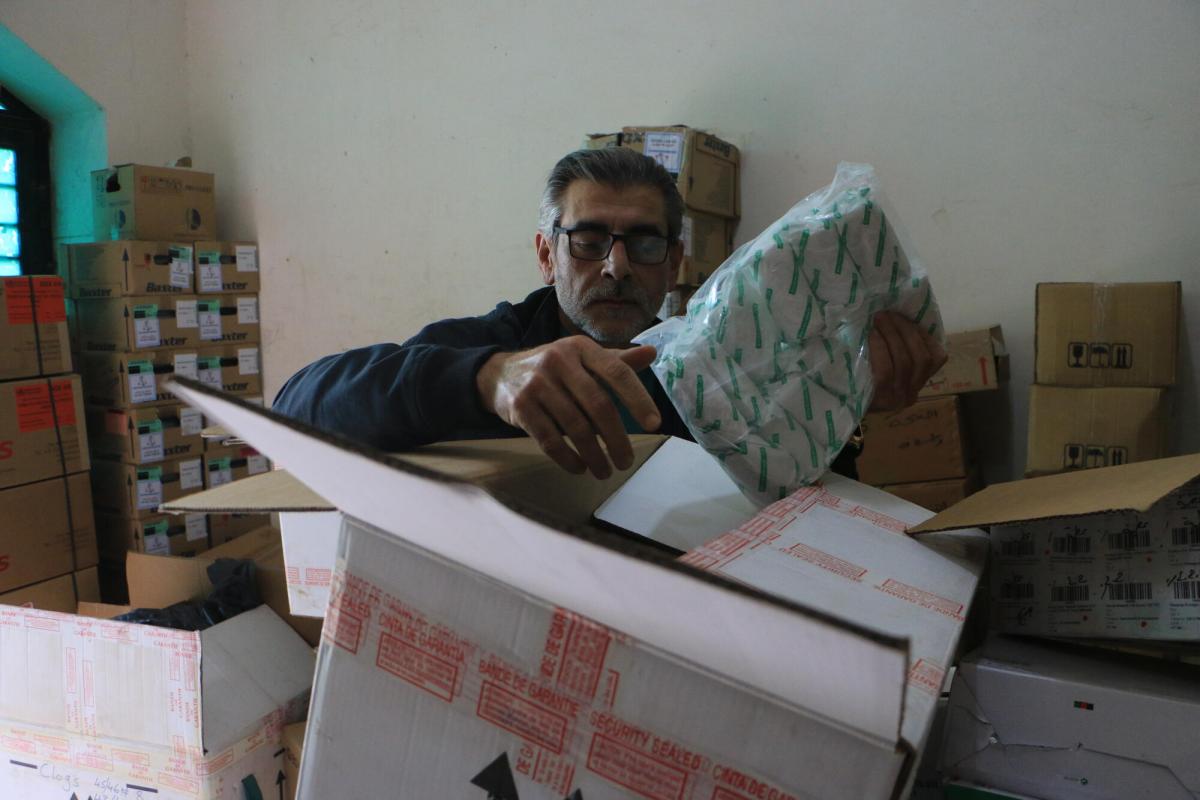Overwhelming needs as earthquakes hit south Türkiye and northwest Syria: MSF scales up its response
Since the strong earthquakes hits Southern Türkiye (formerly Turkey) and Northwest Syria last week, there are over 30,000 deaths according the official figures from both countries as of February 12. Médecins Sans Frontières (MSF) immediately launched humanitarian relief work to respond to the needs in Syria. The teams from MSF are also assessing the medical needs in both countries and aim to provide the necessary support to those populations.
The vulnerable Northwest Syria urgently needs help
Northwest Syria has been going through a dire humanitarian situation due to almost 12 years of war and the compounded effects of the economic situation, the COVID-19 pandemic and, more recently, the cholera outbreak. Its healthcare system was already fragile and the populations has been dependent on humanitarian aid. This earthquake makes the situation even more difficult. Also because of the conflict contexts, the provision of humanitarian assistance from outside of Syria is relatively more challenging, given the supplies must be transported through limited humanitarian crossing points on the Türkiye-Syria border. With the destruction of roads brought by the earthquakes, the supply transportation must be severely impacted - and on the first three days after the earthquakes, no aid convoys were actually able to pass through this corridor.
 Gert Verdonck, Regional Director of Operations Support Unit of MSF Hong Kong shares that during the first 3 days of “golden” window of search and rescue, the local team focused on supporting hospital and other health facilities to respond to the influx of wounded people. He also points out that fractures and crush syndrome are among the most common medical conditions medics will see after an earthquake . The need for obstetric and amputation surgeries will also be significant. In Idlib and Aleppo, MSF supported 30 hospitals and health facilities, through donations of emergency medical kits and mobilisation of medical staff, including surgeons, to help treat the wounded. MSF received thousands of injured in these facilities since 6 February. In addition, the organisation set up mobile clinics in three reception centres deployed in Idlib city and its surroundings, to offer essential medical services to people affected by the earthquakes.
Gert Verdonck, Regional Director of Operations Support Unit of MSF Hong Kong shares that during the first 3 days of “golden” window of search and rescue, the local team focused on supporting hospital and other health facilities to respond to the influx of wounded people. He also points out that fractures and crush syndrome are among the most common medical conditions medics will see after an earthquake . The need for obstetric and amputation surgeries will also be significant. In Idlib and Aleppo, MSF supported 30 hospitals and health facilities, through donations of emergency medical kits and mobilisation of medical staff, including surgeons, to help treat the wounded. MSF received thousands of injured in these facilities since 6 February. In addition, the organisation set up mobile clinics in three reception centres deployed in Idlib city and its surroundings, to offer essential medical services to people affected by the earthquakes.
Currently, the locals are suffering from inadequate water supply, and lack of electricity under the severe cold weather. Roads in the area are also damaged. Gert estimates there will be many other medical needs aside from treatment for immediate traumas.
The lack of clean water could cause outbreaks of waterborne diseases like cholera and malaria. Also, we expect that people living under destroyed shelters in cold weather will lead to respiratory diseases. And another major concern is the mental health of the locals. Some of them have suffered or may develop post-traumatic stress disorder (PTSD). As there are still constant aftershocks, locals fear buildings will collapse and refuse to go inside, including health facilities to seek medical assistance. People will have nightmares and insomnia, it is also common for children to regress in behavior such as bedwetting. The sooner we start providing treatment and support for mental health, the sooner the recovery starts.
He mentions as well how tough this kind of medical response on the ground can be, with the investigation of the structural safety of medical facilities (especially the multi-storey ones) and the health promotion to tell people the locations of safe and functioning mobile health facilities (as some of the existing facilities were destroyed) being two of the major challenges.

MSF has commenced psychological first aid in the medical facilities it supports while continuing to provide regular support to the hospital that are not affected by the earthquake to ensure the continuity care for vulnerable groups such as pregnant women and patients with chronic illnesses. Gert added MSF usually stays in the affected areas of a natural disaster for 3-4 months for emergency response, and then assess if there are needs to stay behind for more support.
First assessment team arrives in Türkiye and ready to support
MSF first emergency teams arrived Türkiye on 8 February, already being distributed Non-food items (NFI) through local partners. Hatay, Gaziantep and Diyarbakir seem to be very affected by the earthquake. Syrian refugees are also in the quake-stricken area of Türkiye, as Türkiye hosts the largest refugee population in the world including more than 3.7 million Syrian nationals, according to UNHCR. MSF remains in close contact with the authorities in Türkiye to extend our support where it’s needed.





Leave a Comment